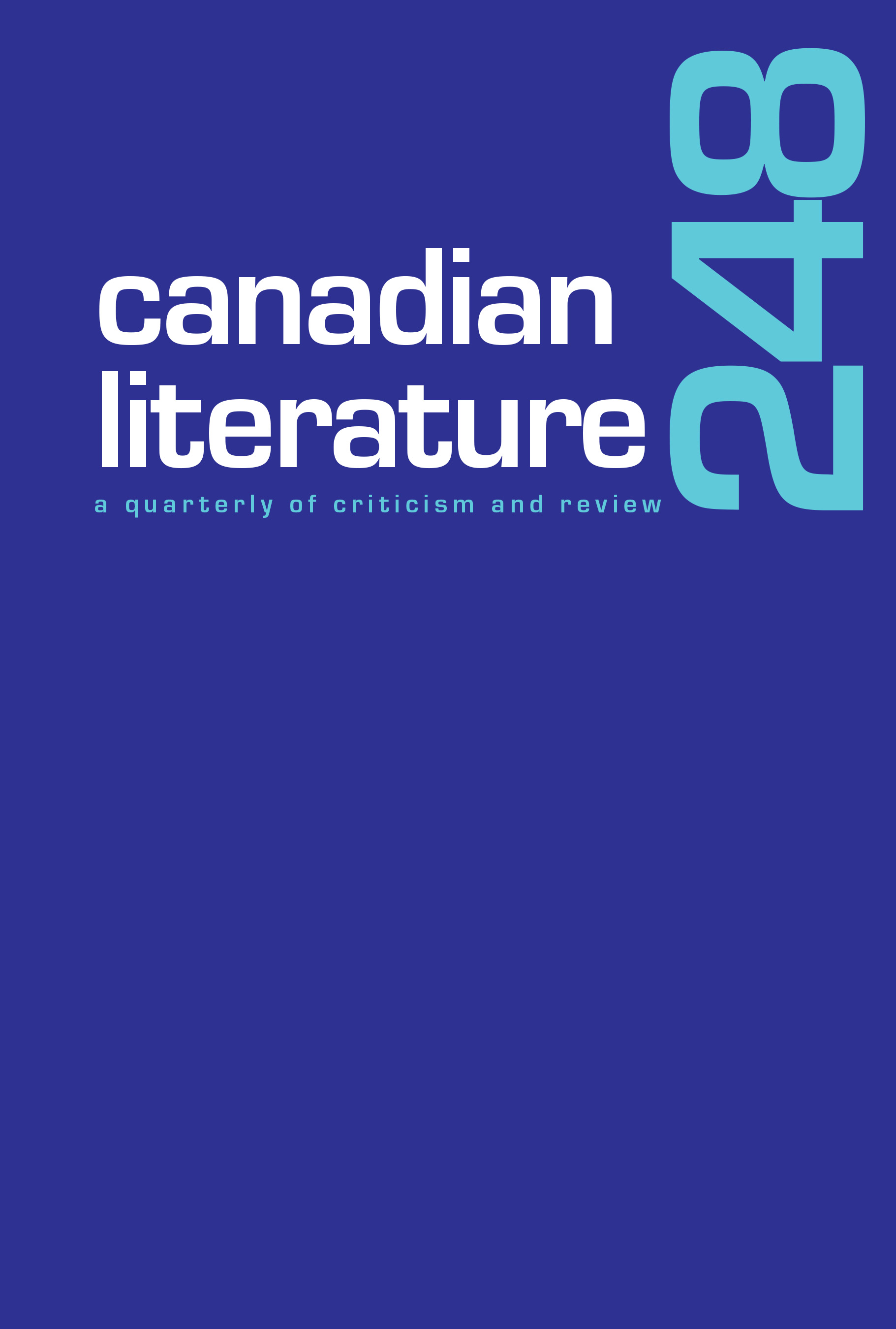Moonlight, Metaphor, and the Influence of Wallace Stevens in Don McKay’s The Book of Moonlight
Abstract
My intention in this paper is to hold Don McKay’s The Book of Moonlight up against Wallace Stevens’ “The Comedian as the Letter ‘C,’” and several of Stevens’ other poems, to explore why Don McKay felt the need to write what Stevens, and his infamous hero Crispin, had left “undone.” Reading McKay’s Book of Moonlight in tandem with Stevens’ “The Comedian” exposes McKay’s poetry as shaped by the dialectical relation between reality and the imagination à la Stevens, which provides a new perspective on what McKay calls “wilderness” and “home.” This reading promotes a broader understanding of McKay’s poetics, especially as an inheritor of Stevens’ legacy. McKay invokes Stevens so that he can work within Stevens’ rich poetic framework, but in doing so, he proves his own mature poetic stance. If, as McKay suggests, the moon is metaphor, it is also the intermediary between McKay and his predecessor.


